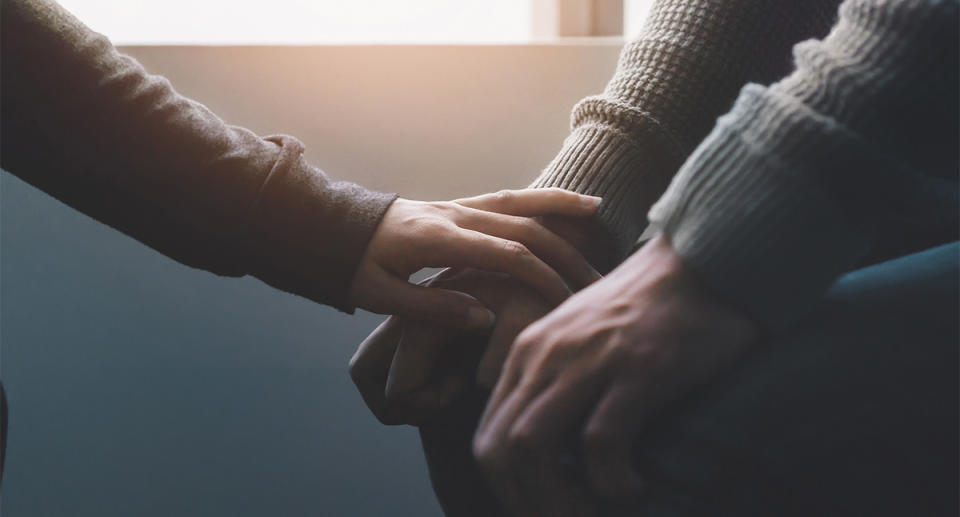'My Suicide Story': How listening to survivors changed my thoughts on suicide
Content Warning: The following article deals with themes of self harm, suicide and suicidal ideation, which may be disturbing for some readers.

Suicide can often be viewed as “cowardly” or “selfish” by those who don’t struggle with mental health issues and suicidal ideation (thoughts about or planning suicide). For those who do suffer or experience suicidal thoughts, many believe completing suicide is the only way to be free of the thoughts and feelings that haunt them.
In 2018, I was inspired to create the web documentary series, "My Suicide Story", after one of my closest friends, Kenny, revealed to me that he had attempted to take his life in 2009. The series features interviews with survivors who have attempted suicide sharing their stories of survival and triumph to help raise awareness and demystify suicidal ideations.
ALSO SEE: Anxiety, depression will likely surge during coronavirus pandemic — here's how to combat it
Before the series, my views on suicide were very different from what they are now. I felt that it was cowardly, and it was selfish to take your own life, while there are people fighting every day against illness, abuse and injustice for theirs. I felt this way because all I could think about and all I had been conditioned to feel sympathy for were the loved ones that were left behind, not to feel sympathy or empathy for those who had been suffering for so long.
It wasn’t until I met with the survivors featured in the series and spoke to more than a hundred others that I realized just how much people who attempt or complete suicide are hurting, and how unfair it is to describe them as “cowards.”

As an outsider, it was easy for me to judge their actions and deem them selfish, but through the series, I was able to view their actions through a different lens. While I do not in any way condone suicide or self-harm, I’ve been able to gain insight into the minds of the millions of people who are burdened by these haunting thoughts.
As time went on and I was able to meet more survivors, I began to notice several parallels in how they were thinking and feeling when they suffered from suicidal ideation. Many expressed that they felt “useless,” that they felt as though they didn’t fit in, and perhaps the most common of all was the feeling that they were burden to everyone around them.
ALSO SEE: TikTokers are using the secret code 'I had pasta tonight' and it has nothing to do with dinner
They might hint at not wanting to be alive anymore or say they feel like a burden to everyone around them or that they serve no purpose on this earth. Unfortunately, their feelings are often misconstrued as attention seeking attention, when in fact they are looking for someone to tell them that they do need to be here, that they aren’t a burden at all, and that they do have a purpose here. Instead, much of the time, their feelings are written off or ignored and that only fuels the fire that is their false sense of a meaninglessness existence. People suffering are not being dramatic; they’re crying for help.

After hearing these similar sentiments time and time again, I began to truly empathize with them. What I was able to gather from all of these conversations is this: People suffering from suicidal ideations, are suffering from a disease, just like someone who’s suffering from cancer.
After Kenny told me abut his suicide attempt and his recovery, I suggested we record his story and share it online. My hope was that other people who were suffering might see his story and realize that they’re not alone.
ALSO SEE: Katy Perry reveals she had suicidal thoughts in 2017: 'I just crashed'
Shortly after uploading "Kenny’s Story" to YouTube, we began receiving message from other survivors. They expressed their gratitude and commended Kenny’s bravery and willingness to come forward and share his story – a story that so many others were able to relate to, but couldn’t bear to speak of.
It was at this point that I realized I had a chance to use the platform to impact people in a positive way. I made the decision to continue the series and help other survivors share their stories with the world. With the help of my girlfriend and my brother, Christian we were able to take our series to the next level.

Soon, our series began receiving attention. The series was featured in a few local news outlets before this, but as Alexandra’s Story impacted more people, leading to our series being featured on outlets like Medium, Yahoo, Thrive Global, and USA Today.
With my brother now by my side, we were able to sit down and create a detailed of what both envisioned to expand the series. The first order of business was to sort through the hundreds of messages sent by survivors asking to share their stories in upcoming episodes.
We started to organize the survivors by state, creating a map spanning from New York to California, with the name of all the survivors who wish to share their stories. Our plan is to travel across the country and take the series on the road indefinitely.
Each one of these stories need to be told, not only to allow survivors to free themselves from their burdens and. to hopefully break the stigma that is associated with suicide. The more stories we can to share through the series, the more mental health awareness we can raise.
We hope that people learn that people struggling aren’t “crazy” or attention-seeking, but most importantly we hope that people suffering might feel relief in knowing they aren’t alone. We hope the series encourages people to seek help, and know that someone has felt the same way they do and that they’ve overcome those feelings.
If you are struggling and in need of support, contact the Crises Services Canada by phone at 1.833.456.4566 or text 45645.
Let us know what you think by commenting below and tweeting @YahooStyleCA! Follow us on Twitter and Instagram and sign up for our newsletter.


